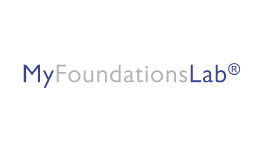Contributing to competitiveness
The connection between education and long‑term economic growth is well‑documented and increasingly well understood.
Helping individuals get ready for work.
Getting a job depends on having relevant skills. At this time, when many countries are wrestling with the economic, social and personal cost of unemployment, particularly for the young, it is even more important that we help people develop the skills they need for work.
Case study: Pearson Test of English
English language ability can often be the passport to work or academic opportunity for many, non-native speakers of English. The Pearson Test of English is designed to help demonstrate that ability. The test can be taken in a network of centres in nearly 50 countries from Australia to Venezuela taking in Brazil, China, Nepal and South Korea along the way.

Securing a professional or vocational qualification is an important factor in getting a job. We create and administer millions of admissions, tests, certifications, vocational assessments and general qualifications including:
- BTEC, the vocational qualification recognised by schools, colleges, universities, employers and professional bodies across the United Kingdom and in over 100 countries worldwide.
- The Graduate Management Admission Test (GMAT), the leading test for entrance to business schools and management programmes worldwide.
- NCLEX Nursing examination, required to obtain a licence necessary to apply for work as a nurse in the United States.
We also see that the world of work is changing. The pace of change is rapid and people starting work today can expect to be doing different types of work demanding different skills over a lifetime. Adult learning is one of our biggest global growth opportunities and we are developing ways to help people access and develop new skills.
Case study: MyFoundationsLab
College enrolments in the United States are at record levels, in part fuelled by people unable to access the job market. Many students are arriving on campus and finding they lack the mathematics and English skills needed to do college-level work. MyFoundationsLab is designed to ofer students a way to quickly improve their mathematics, reading and writing skills and to avoid expensive remedial teaching programmes.

Doing informed business
The FT Group is the leading provider of essential information, insight and analysis to the global business and opinion‑forming community. Access to trusted and informed information is the basis on which businesses make effective decisions. The FT plays a unique global role in providing that information.
Case study: The Financial Times, active in education
In a partnership with the Pearson education businesses, the FT's world-class journalism has been made more easily accessible for graduates, students and professors. A new trademark licence agreement allows Pearson to use a new database of over 100,000 FT articles across its products and services for the education market around the world.
The FT also launched MBA Newslines in 2011, a new product aimed at business schools that enables students, faculty and practitioners from around the world to create and share annotations on FT articles. These practical case studies will help students to master business, understand financial markets or see the political economy or international law in action.

Contributing to debate
We are committed to playing an active role in helping shape and inform the global debate around education and learning policy. With the 2015 deadline for achieving the Millennium Development Goals and Education for All Goals fast approaching, it is certainly time to take stock on the role that education has played and should play for the future. We have joined with a range of organisations as an active member of the Global Compact on Learning. Ways we are helping include contributing to developing and agreeing common metrics to measure the success of the Global Compact goals and innovating through new qualifications and support, such as ‘Edupreneurs’ – a way for people to be trained both as teachers and to help run schools in the developing world.
A key principle for us is that the private sector has an important contribution to make to developing education and learning policy. However, there is no global body in place to convene business on this issue. We are strong advocates of the view that there is value in engaging the wider business community in a coalition that focuses on the challenges facing developing countries in education and learning, mirroring the Global Business Coalition on Health. We were therefore delighted to support, encourage and help found the Global Business Coalition for Education under the guidance of former UK Prime Minister, Gordon Brown.

